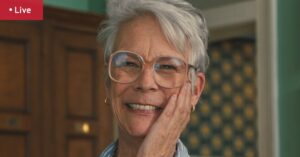
PHILADELPHIA – A recent survey conducted by the Annenberg Public Policy Center (APPC) reveals that a significant majority of Americans support mandatory MMR (measles, mumps, and rubella) vaccinations for children attending public schools. The survey, carried out in April 2025, indicates that 70% of the public favors vaccine requirements, a notable increase from previous years.
This development follows a period of intense debate over vaccination mandates, particularly highlighted by Health and Human Services Secretary Robert F. Kennedy Jr.’s statements. While Kennedy has publicly acknowledged the effectiveness of the MMR vaccine in preventing the spread of measles, he has also expressed opposition to government-imposed mandates, advocating instead for parental choice.
Public Opinion Shifts Towards Vaccine Mandates
The Annenberg Science and Public Health survey, which included a nationally representative panel of 1,653 U.S. adults, found that when respondents were asked to choose between parental discretion and mandatory vaccination for school attendance, 70% supported the requirement. This marks a significant rise from August 2023, when only 63% held this view.
The survey’s findings are part of a broader trend towards favoring vaccine mandates, as evidenced by another Annenberg survey conducted in January 2025. This earlier survey showed that over 70% of U.S. adults support mandatory vaccination policies for preventable diseases such as measles, mumps, and rubella.
According to the survey, “Less than one in five people (18%) say their view is closer to the statement that ‘parents should be able to decide whether or not to vaccinate their children who attend public schools even if their decision not to vaccinate creates health risks for other children.'”
Context and Background
The Trump administration’s Make America Healthy Again (MAHA) Commission report, released in September, has also contributed to the ongoing discourse. The report calls for a reevaluation of childhood vaccine schedules and mandates, emphasizing the need to fully inform parents about the risks and benefits of vaccines. It highlights concerns among some parents about the role of vaccines in the increasing prevalence of chronic diseases in children.
The APPC’s survey is part of a long-term effort to track public knowledge and attitudes towards vaccination and other health issues. The survey panel, managed by SSRS, an independent market research company, has been in place since April 2021, with periodic updates to maintain its representativeness.
Expert Opinions and Implications
Experts from the Annenberg Public Policy Center, including research analyst Laura A. Gibson and director Kathleen Hall Jamieson, emphasize the importance of understanding public sentiment on vaccination. They note that the increasing support for vaccine mandates reflects growing awareness of the public health risks associated with unvaccinated children in school settings.
Patrick E. Jamieson, director of the Annenberg Health and Risk Communication Institute, suggests that the rise in support for mandates may be influenced by recent outbreaks of preventable diseases, which have underscored the importance of herd immunity.
“The public seems to be recognizing the collective responsibility to protect vulnerable populations, including those who cannot be vaccinated for medical reasons,” Jamieson stated.
Looking Ahead
As the debate over vaccine mandates continues, policymakers and public health officials will need to balance individual freedoms with community health needs. The APPC’s ongoing research will likely play a crucial role in informing these discussions, providing valuable insights into public attitudes and behaviors.
With the next wave of the Annenberg Science and Public Health survey scheduled for later this year, it will be interesting to see how public opinion evolves and how it may influence future policy decisions regarding vaccination mandates in schools.






